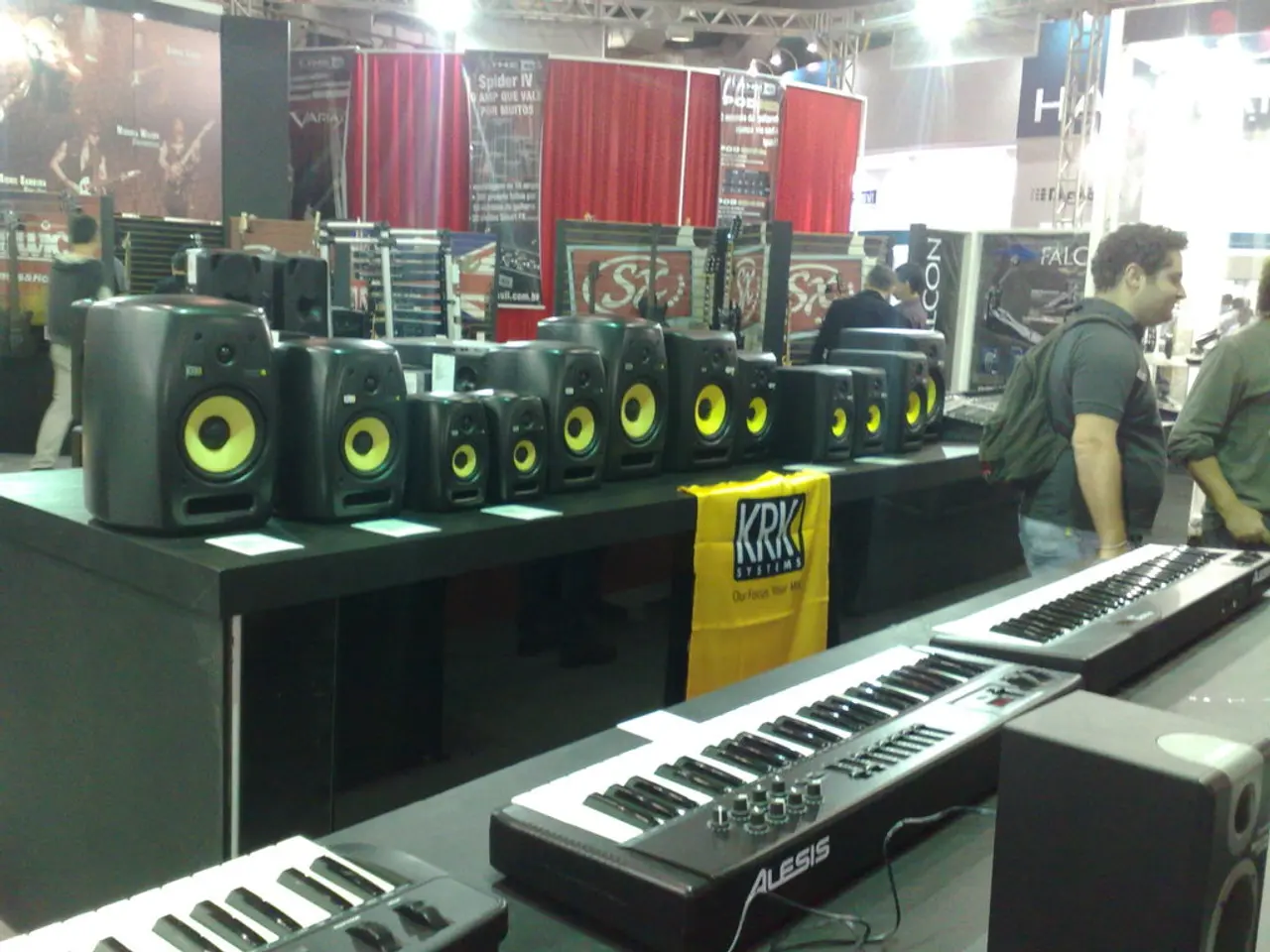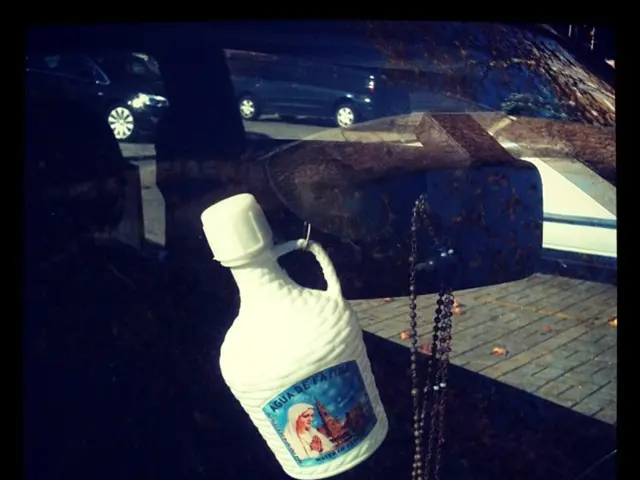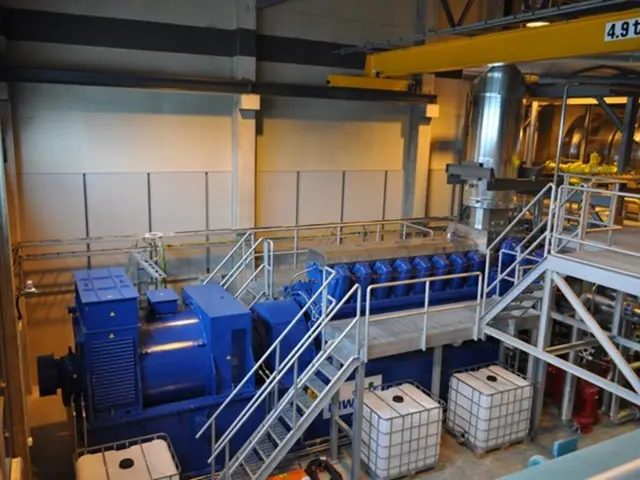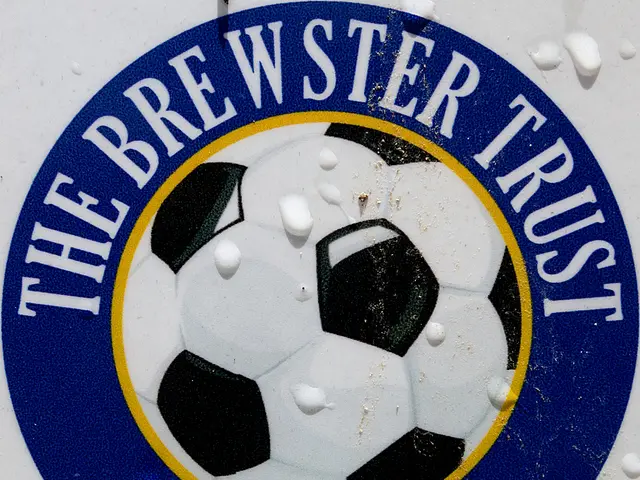Tourism decline in Las Vegas, casinos left empty, decreasing hotel prices raise concerns
Las Vegas, the global capital of gambling entertainment, is experiencing a significant drop in tourist traffic. The city's summer season has been described as "soft" by Tom Reeg, CEO of Caesars Entertainment, citing a 6.5% decrease in hotel occupancy rates as evidence [1].
According to travel consultant Mallory DuMond, the rising costs of visiting Las Vegas are making it less appealing to tourists. The average daily room rate in Las Vegas hotels has reached $163.64, a 6.6% drop from last year, but the perception of high prices and add-on costs remains [2].
Social media users are echoing these sentiments, with discussions about high prices, lack of summer events, and unbearable heat dominating platforms like Reddit's r/lasvegas. On X (formerly Twitter), one user even described Las Vegas as "dead." Another user posted a photo of a nearly empty casino [3].
The decline in tourist traffic is attributed to a combination of factors. The largest domestic market for Las Vegas, California, is seeing a decrease in visitors, with air and road traffic down significantly [4]. International arrivals have also dropped by 13.2%, with major foreign markets such as Canada showing sharp declines [5].
Political and immigration policies are also playing a role, with U.S. immigration enforcement policies and the "Trump Slump" contributing to the drop in international tourists [2][3]. Economic caution amid fears of recession and inflation, reduced convention attendance, and overall reduced hotel occupancy rates are further impacting tourist numbers [5].
To counteract this decline, Las Vegas is adapting by promoting a wider range of price points, from budget options to high-end experiences. Local analysts emphasize the market’s adaptability, offering both affordable and luxury choices to attract broad audiences [3]. Some industry insiders and content creators are also suggesting practical travel guides with tips for saving money on accommodation, food, and entertainment [4].
Despite these efforts, as of mid-2025, Las Vegas has not publicly announced major new large-scale initiatives. However, the city's strategy appears focused on leveraging varied pricing, targeted marketing, and adapting to changing tourist demographics to counteract the decline [3][4]. The city's gambling revenue remains strong, suggesting profitability even with fewer visitors [1].
| Reason for Decline | Details | |-------------------------------------------|----------------------------------------------------------| | Decline in Californian visitors | Largest market, down 4-11% in traffic and air travel | | Drop in international tourists | 13.2% fewer international visitors; Canadian market down 55%| | Political and immigration policies | U.S. immigration enforcement deterred some travelers | | Inflation and rising prices | Resort fees and hotel add-ons perceived as "gouging" | | Economic uncertainty | Reduced convention attendance and cautious spending |
| Steps Taken to Regain Popularity | Details | |--------------------------------------------|----------------------------------------------------------| | Promoting diverse pricing options | From budget meals to luxury experiences | | Emphasizing value with local travel guides | Tips for saving money on hotels, food, and entertainment | | Leveraging gambling revenue strength | Continued profitability despite fewer tourists |
This multidimensional approach reflects Las Vegas's effort to adapt in challenging economic and political conditions [1][2][3][4][5]. To regain its former popularity, Las Vegas must focus on decisive reforms, transparency, fair prices, and improved service quality. DuMond suggests booking accommodation from Sunday to Thursday, when prices can be up to half off [6].
In a concerning development, three lawsuits were filed against two major resorts on the Las Vegas Strip in April, related to incidents that occurred last summer [7]. Brian Virag, founder of My Bed Bug Lawyer, is representing the plaintiffs and speaks of a systemic bedbug problem in Vegas hotels [8].
As Las Vegas navigates these challenges, it remains to be seen how the city will adapt and recover.
- What impact have the high costs associated with visiting Las Vegas had on its tourism? Some social media users are describing the city as "dead" due to the perceived high prices and add-on costs, despite a slight decrease in the average daily room rate.
- Who are some of the notable figures in the casino industry discussing the drop in Las Vegas's tourist traffic? Tom Reeg, the CEO of Caesars Entertainment, and travel consultant Mallory DuMond are expressing concerns about the city's declining popularity.
- In an effort to counteract the decline in tourist traffic, what strategies is Las Vegas employing to attract wider audiences? The city is promoting a range of pricing options, from budget solutions to high-end experiences, as well as offering practical travel guides with money-saving tips.








